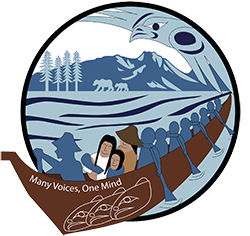Truth and Reconciliation
Sk’elep Reconciliation – Bonnie Van Hatten, CEO
“Consultation services for Indigenization of your business or organization. Do you want to infuse Indigenous knowledge and perspectives into your business? Learn how to create an inclusive environment through world view and connectedness.” https://www.skelepreconciliation.com/
Monique Grey Smith
“Monique Gray Smith is a proud mom of teenage twins, an award-winning, best-selling author and sought after consultant.”
https://www.moniquegraysmith.com/
IndigenEYEZ
“We offer leadership and facilitation training—rooted in Indigenous ways of being—that help strengthen communities to restore the circle and cultivate hope. https://indigeneyez.com/
Len Pierre Consulting
"We are a multidisciplinary team of consultants and facilitators who advise and train teams/organizations on Indigenous Cultural Safety, Reconciliation, Decolonization, & Anti-Racism."
https://www.lenpierreconsulting.com/
The Kairo Blanket Exercise (KBE) is an experiential learning opportunity that reviews the history and impact of colonization on Indigenous Peoples.
To find an Indigenous person who facilitates this exercise, please contact brendar@seabirdisland.ca
- Listen: from your first phone call to your exit meeting or call, families need to be heard even if they aren’t speaking. Hold space with them and get comfortable with silence as this can be important time to process information or gather thoughts.
- Every family is unique: remember that each family and individual in the family comes with their own unique perspective. Remembering this helps us stay open and connect with the person/ people where they are most comfortable. Meet them where they are at in this moment.
- Be non-judgemental and open: due to many factors including history of colonization, systemic racism and present day prejudices many individuals and families do not know about their culture. It is important not to make any assumptions.
- Educate yourself: there are many resources that can support your own individual learning around Indigenous history, intergenerational trauma, cultural education, and how to support cultural safety and inclusion – the Many Voices One Mind website is a good place to start your learning journey.
- Take your time: remember it may take some time to build relationships with families. Coming in as a professional may put you at a disadvantage from the beginning as, historically, professionals/ organizations have not acted in the families best interest and in fact have worked to tear apart families and remove cultural practices, language, belief systems, and pride. Your job is to come along side the family, encourage empowerment and offer available supports that the family wants to help them thrive. Keep trying and show up.
- Be honest and Follow through: Do what you say you are going to do. Make sure you work on building trust by only offering what you can provide and always following through. Trust is paramount in building strong relationships with indigenous families. Be realistic about what is available and what you can do to support.
- Check in with your own biases: self-reflection is an important part of working with others. Investigate your own assumptions, beliefs and perspectives. We all have them, they are a natural brain response however you can be aware of them and work to ensure they do not interfere with your ability to do you best, most compassionate work.
Resources to consider:
https://www.ictinc.ca/blog/7-tips-on-building-relationships-with-indigenous-peoples
https://reseaumtlnetwork.com/wp-content/uploads/2019/04/Ally_March.pdf
We live in a country that made it a policy to systematically eliminate Indigenous peoples. The government is responsible for this cultural genocide. The dollars are there to right their wrongs.
- Reach out to the local band office in your area and build a relationship.
- Invite someone from the local band office to come visit and share their cultural knowledge with the children and staff in circle time. The band representative can also collaborate with center staff to support cultural learning.
- See if the local band would allow you to come on a field trip and visit the reserve.
- Take out cultural kits and cultural books from your local CCRR or library.
- Attend cultural workshops that are listed on the ECEBC web page or your local CCRR.
- Invite families enrolled in your program to share their cultural knowledge.
- Research activities that support cultural learning and implement them into your program through art, stories, and music.
A territorial or land acknowledgement is an act of reconciliation that involves making an opening statement recognizing the traditional territory of the Indigenous people who called the land home before the arrival of settlers. This is often done at the beginning of ceremonies, meetings, or public events. Acknowledging a territory shows recognition and respect to Indigenous people. It is recognition of their presence both in the past and in the present.
You can use use an online tool such as: https://native-land.ca/
